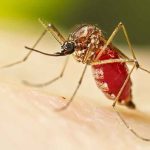
Understanding and valuing nature and all that it has to offer is the character quality for 69th Wildlife Week that takes place from 2nd to 8th October. The choice of dates coincides with the birth day of Mahatma Gandhi who is symbol of non-violence and compassion toward all living beings. World Animal Day is again celebrated on 4th October to advocate the rights and welfare of animals. These days serve as a poignant reminder of the moral responsibility we share to protect and nurture earth’s diverse wildlife. From providing with multiple beauties, food sources, medicines and flourishing the planet, wildlife are the most precious gift of God to us.
The core objective of wildlife week celebration is to educate individuals about the intricacies of animal life and urging them to refrain from killing. Wildlife week represent a call to action, appealing the society to unite in preserving our biodiversity, cherishing the magnificent tapestry of life that surrounds us. By taking a stand and fostering a culture of conservation, we can collectively secure a future where both humanity and wildlife thrive in harmony. However, factors like rapid globalization and industrialization have put an unhealthy strain on the planet resulting in many challenges.
The theme for this year is “Partnerships for Wildlife Conservation.” Wildlife conservation is a team work. We can’t save our planet’s amazing animals and plants alone. The theme guides conversations, conservation endeavors and public awareness campaigns, channeling efforts through seminars, lectures, awareness programs, workshops, public meetings, slogan, spot painting & essay writing competitions among the youths and students.
The essence of the week lies in fostering empathy and compassion towards the animal kingdom, ultimately striving for a harmonious coexistence where humans play an active role in ensuring the well-being of these lovely creatures. The role played by wildlife in maintaining the ecological balance of nature is undeniable. Any harm to the wilderness can pose a threat to the entire pristine ecosystem.
The wildlife have an intrinsic value and contribute to the ecological, genetic, economic, scientific, educational, cultural, recreational and aesthetic aspects. It also reminds us of the urgent need to step up the fight against wildlife crime, which has wide-ranging economic, environmental and social impacts on halting biodiversity loss.
With major portion of the world’s biodiversity is being under threat, including 25% of mammals, 1 in 6 bird species and 40% of amphibians lies the significance of observing wildlife week. India owns 7.8% of the recorded species of biodiversity reserved in the planet, though we share only 2.4% of the world’s geographical area and harboring 20% of world population and 15% of cattle population. The country is in the 5 hot spots of the world. More than 500 species of mammals, 1,220 species of birds, 1,600 species of reptiles and amphibians and 57,000 species of insects populate this subcontinent. India owns 75% of the world’s wild tiger population, 60% of Asian elephants, 80% of the one-horned rhinoceros and the entire remaining population of the Asiatic lion.
But the rich and fascinating wildlife brings with itself several threats as well. To make the wildlife saving plans successful, the country has 998-Protected areas including 106 National Parks, 567 Wildlife Sanctuaries, 33 Elephant Reserves, 54 Tiger Reserves, 105 Conservation Reserves and 220 Community Reserves covering 1,73,629 sq. km which is 5.28% of geographical area. Wildlife preservation is also a plan to manage wildlife along with the human progress and both of which are indispensable.
The present status of wildlife in Manipur is very alarming. The hill districts where maximum of our wildlife are recorded, today also there is the tradition of hunting. In most of the hill areas, meats of many scheduled animals are sold without restrictions. Authorities are still issuing gun licenses which are mainly meant for hunting animals. Thousands of acres of wildlife habitats are destroyed every year from indiscriminate felling, jhoom cultivation including the present menace of poppy cultivation. Thus 43% people residing in hills which share 90% of state’s geographical area should take the proactive role to conserve wildlife in Manipur.
This year, due to the ongoing communal crisis, a vast area of forests has been burnt down. Thus, the wild animals in the state that once roamed abundantly but now become almost negligible are again much affected with. The state’s changing impacts of climate such as scanty rainfall, rising temperature, cyclones, landslides, floods, numerous diseases and pollution have also given unbearable impacts to our wildlife.
Future of wildlife conservation depends on the action and values from local authorities and governments. By facilitating a deeper bond between environment and mankind, our wild life can be saved and conserved. A state without wildlife will be really a horrible. Therefore with coming of the Wildlife Week- 2023, the people both from hill and valley should take a joint effort to save our wildlife.
N. Munal Meitei
Environmentalist, email- nmunall@yahoo.in













